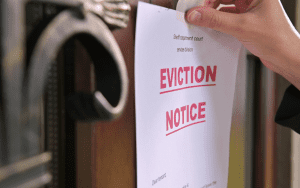2020 was an unpredictable year, to say the least. Each new week seemed to hold its own uncertainties and concerns. And in 2021, the world is still adjusting. In such times, it is important for tenants of residential property to know what their rights are in terms of premature cancellation of lease agreements that may be necessitated by COVID-19, the pursuant lockdown regulations and general change of personal circumstances.
As a point of departure, the tenant can consult the lease agreement to check if there are any provisions pertaining to early cancellation. If there is no such clause, or the terms of the clause are unacceptable, the tenant can turn to the provisions of the Consumer Protection Act 68 of 2008 (“the CPA”), if applicable.
The CPA will be applicable to residential lease agreements, except in rare circumstances. Consult with your lawyer to determine the CPA’s applicability to your lease agreement.
If the CPA is applicable to the lease agreement, the tenant would be able to lawfully cancel the lease agreement at any time, even if there is no cancellation clause in the agreement. Section 14(2)(b) of the CPA states that a tenant may cancel the lease agreement, despite any provision of the lease agreement to the contrary, by giving 20 business days’ notice in writing.
There may however be financial consequences for the tenant as the landlord can impose a reasonable cancellation penalty on the tenant upon early cancellation. There are guidelines in Regulation 5 of the Act as to what a “reasonable cancellation penalty” entails.
The cancellation penalty should not be exorbitant, and if the tenant feels that the landlord’s claim is excessive and unfair, they can approach the National Consumer Tribunal or the Rental Housing Tribunal. Tenants can also approach their lawyer, who can address the landlord and negotiate a reasonable cancellation penalty, considering the relevant facts of the matter.
Upon expiry of a fixed-term lease agreement the lease agreement will automatically carry on a month-to-month basis, unless the tenant expressly agreed to the renewal of a further fixed-term or the tenant terminated the agreement upon the expiry date. In such a case, the provisions of the Rental Housing Act 50 of 199 are relevant. The landlord can cancel the lease agreement, in terms of the Act, by giving one calendar months’ notice.
In Luanga v Perthpark Properties Ltd 2019 (3) SA 214 (WCC), the Western Cape High Court held that one month’s notice must be interpreted as a notice given before the end of the month, to terminate the contract at the end of the next month.
There are therefore various considerations at play when a tenant considers premature cancellation of a lease agreement. To avoid unnecessary disputes and an exorbitant cancellation penalty, a tenant would benefit from consulting their attorney before giving notice of cancellation to their landlord.
This article is a general information sheet and should not be used or relied on as legal or other professional advice. No liability can be accepted for any errors or omissions nor for any loss or damage arising from reliance upon any information herein. Always contact your legal adviser for specific and detailed advice. Errors and omissions excepted (E&OE)
















